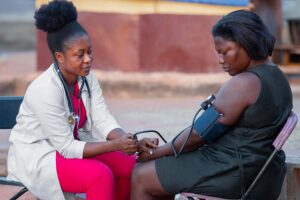Plasma donation is a life-saving practice that many people are still unaware of. In Nigeria, the need for plasma, blood donations, and related services is growing, as the healthcare system continues to face significant challenges. If you’re new to plasma donation or are considering it, this guide will provide you with everything you need to know to make an informed decision.
What Is Plasma Donation and Why Is It Important?
Plasma is the golden liquid portion of your blood that contains water, proteins, and essential nutrients. It helps transport red blood cells, hormones, and waste products throughout your body. Unlike blood donation, which focuses on giving whole blood, plasma donation specifically targets the yellowish liquid that makes up about 55% of your blood.
Plasma donation is crucial for treating a wide range of medical conditions, including severe burns, shock, trauma, clotting disorders, and certain blood diseases. It also plays a vital role in creating life-saving medicines and therapies, such as immunoglobulin and clotting factor treatments for hemophilia.
Blood Donation vs. Plasma Donation – What’s the Difference?
When most people think about giving blood, they typically mean donating whole blood, which contains red cells, white cells, plasma, and platelets. Plasma donation, on the other hand, involves the collection of just the plasma, leaving the other components in your body to regenerate naturally. The process of plasma donation is slightly longer than whole blood donation but is no more painful.
Unlike selling blood, plasma donation is a voluntary and charitable act aimed at saving lives. There are plasma donation centers in Nigeria that offer a safe and comfortable environment for donors.
Who Can Donate Plasma?
Before heading to a plasma center, it’s essential to know if you are eligible to donate. The key requirements include:
-
Age: Donors must be at least 18 years old and up to 65.
-
Weight: You must weigh at least 50 kg (110 lbs).
-
Health: You should be in good general health, with no history of chronic illnesses like diabetes or hypertension.
-
Blood Group: While most blood groups can donate plasma, it’s important to know your blood group and rhesus factor (positive or negative), as some groups are more in demand than others.
If you’re unsure about your blood group or genotype, many plasma donation centers will help you determine that information.
The Plasma Donation Process
Donating plasma involves several simple steps:
-
Registration: The first step is to fill out a medical questionnaire to assess your health and eligibility.
-
Screening: A nurse will take a small blood sample to check your hemoglobin levels and ensure you’re fit to donate.
-
Collection: During the donation process, blood will be drawn from one arm, and plasma will be separated out using a special machine. The remaining components, such as red blood cells, platelets, and white blood cells, will be returned to your body.
-
Recovery: After donation, you’ll rest for a few minutes and drink fluids to rehydrate.
The whole process takes about 45 minutes to an hour.
Why Plasma Donation Matters in Nigeria
With the rising need for blood products, particularly plasma, in the Nigerian healthcare system, donating plasma can directly impact the lives of countless individuals. Hospitals and clinics rely on blood banks to treat patients with trauma, burns, infections, and blood disorders. By choosing to donate blood or give plasma, you are helping to provide these essential supplies to save lives.
However, the demand often outweighs the supply. Many people do not donate due to misinformation or fear of the donation process. This leads to a shortage of plasma, which is why plasma donation centers and blood drives like those run by Oneus in Nigeria are so crucial.
Selling Plasma vs. Giving Plasma
Some individuals may consider selling plasma as a means of earning money. However, it’s important to distinguish between selling plasma and donating it. Selling plasma is typically regulated in commercial plasma donation centers, while giving plasma for free ensures that the donation is used for medical treatments rather than personal gain. The cost of cord blood banking or any other associated services should never deter you from considering genuine plasma donation.
The Benefits of Plasma Donation
The blood donation benefits extend beyond the lives of those in need. For the donor, plasma donation can help:
-
Boost your health by stimulating the production of new blood cells.
-
Maintain a healthy cardiovascular system.
-
Enhance your well-being through the knowledge that you are actively helping others.
Additionally, studies have shown that blood donation benefits to the skin may include a glowing complexion, thanks to the body’s increased circulation and rejuvenation after donation.
Risks and Considerations
While plasma donation is safe for most people, there are a few risks to consider. Donors may experience:
-
Mild dizziness or fatigue.
-
Bruising at the needle site.
-
In rare cases, nerve irritation or blood clotting issues.
These risks can be minimized by ensuring you donate at a certified plasma center with experienced staff.
Take Action – Give Blood, Save a Life!
Whether you are considering platelet donation, bone marrow donation, or even stem cell donation, each act plays an integral role in helping those in need. It’s simple, painless, and can be done regularly.
Now that you understand the importance of plasma donation, it’s time to take action. Give blood, donate plasma, and save a life today.
To donate plasma or learn more, contact us at info@oneusng.com, call +234 902 168 2822, or visit Oneus Nigeria. Let’s work together to create a healthier and more connected Nigeria.
Book your donation today – your plasma could save someone’s life!




